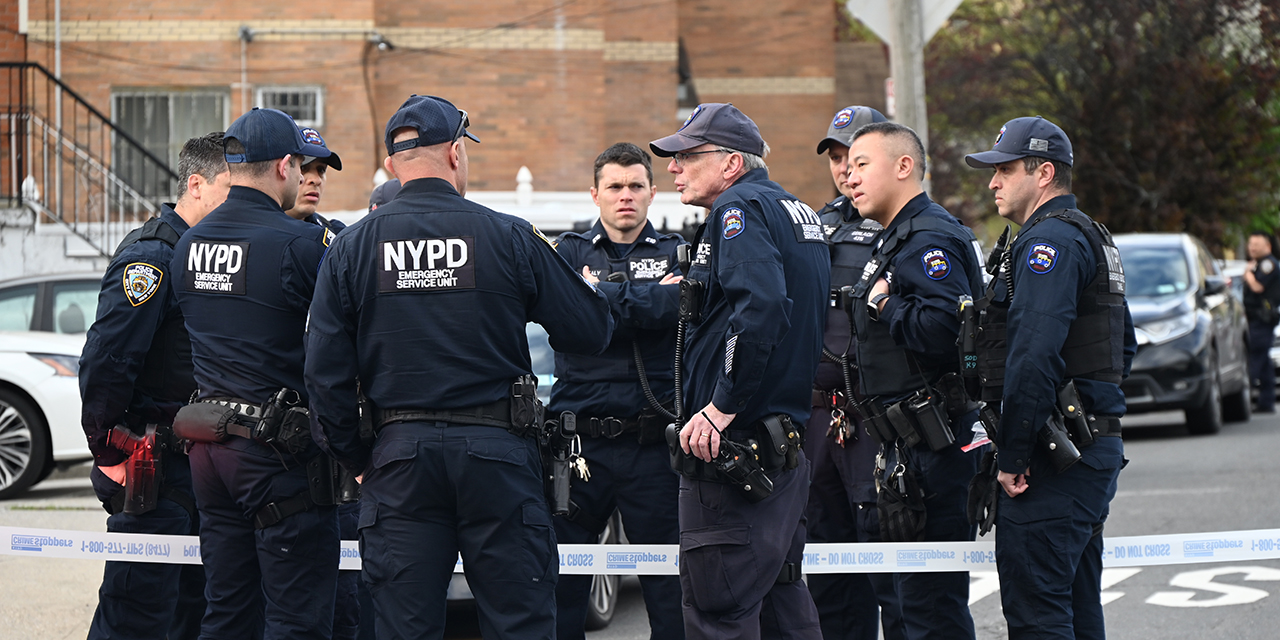In his seminal work, On Liberty, philosopher John Stuart Mill wrote that “the peculiar evil of silencing the expression of an opinion is, that it is robbing the human race.” He continued, “If the opinion is right, [those who hold it] are deprived of the opportunity of exchanging error for truth; if wrong, they lose what is almost as great a benefit, the clearer perception and livelier impression of truth, produced by its collision with error.” A recent spat at my alma mater illustrates how our nation’s colleges and universities are forgetting Mill’s important lesson.
Earlier this month, in the Chicago Tribune, DePaul University law professor Monu Bedi—under whom I studied criminal law and procedure—argued that there was “nothing racist about the actual law or policy” of New York City’s stop-and-frisk, under which police could question and sometimes search civilians on the street for illegal firearms. Bedi argued that the distinction between a policy and its application is meaningful, noting that “reforming people” and “reforming laws” represent “different objectives that naturally require different strategies.” This seems reasonable, particularly given his belief that we can effectively govern how law enforcement wields its power without eliminating that power altogether.
For expressing these views, Bedi, a minority himself, has become the target of a student backlash, led by the Black Law Student Association (BLSA), whose members have accused him of telling “Black or Hispanic person[s] in America . . . what we can and can’t say.” The BLSA’s outrage only intensified when DePaul’s development director shared Bedi’s article on LinkedIn. “So damn,” said R.J. Foster, BLSA vice president, on a podcast produced by the school newspaper. “We see that, and it’s just like, ‘Hey—fuck y’all, we’re gonna side with this; and like, we don’t give a damn about the student of color experience at DePaul Law.’ That’s what it feels like.” Of course, neither Bedi’s writing nor the LinkedIn post suggested any such attitude.
Bedi, in fact, holds liberal views on criminal-justice issues. In the past, he argued that stop-and-frisk was implemented in a discriminatory way in New York, and that the criminal-justice system—police officers, in particular—had “a problem with implicit bias.” Yet the feverish response to his Tribune article ignores how his basic position on stop-and-frisk (which, in my view, isn’t supported by available data) differs little from theirs. That campus activists would get so worked up about a nuanced argument largely in line with their own is especially problematic when the issue is criminal justice, where policy choices can make a difference between life and death.
The city that DePaul University calls home demonstrates the stakes of such advocacy. According to a recent analysis by Paul Cassell and Richard Fowles, Chicago’s bail-reform policy has led to increases in the number of total crimes and violent crimes committed by pretrial defendants (45 percent and 33 percent, respectively). These crimes, including homicides, haven’t been evenly distributed throughout the city. Bail reform’s effect on Chicago’s South and West Side neighborhoods—whose residents are mostly black and Latino—was compellingly illustrated in a recent Tribune investigative report, which noted the serious crimes committed by repeat offenders released under the new policy.
Cassell and Fowles also looked at the Chicago Police Department’s sharp curtailment of pedestrian stops in 2015 and 2016. They found that when police cut back on pedestrian stops—as Bedi’s critics openly advocate—it resulted in an additional 245 homicide victims and more than 1,100 additional shootings. Victims were mostly black and Latino.
Criminal-justice debates demand thorough and thoughtful scholarship, which, in turn, demands respect for academic freedom and a tolerance for scholars who take positions that may be contentious. Far from being a slight directed at minority students, Bedi’s article was an attempt to solve what both he and his critics view as a problem in law enforcement. The resulting backlash will only narrow the bounds of academic inquiry—and that’s not good for anyone.
Photo by Justin Sullivan/Getty Images



